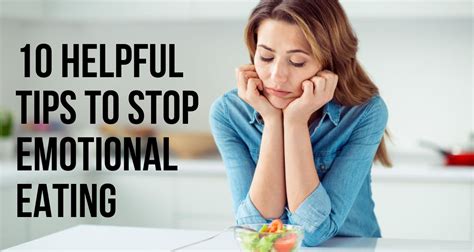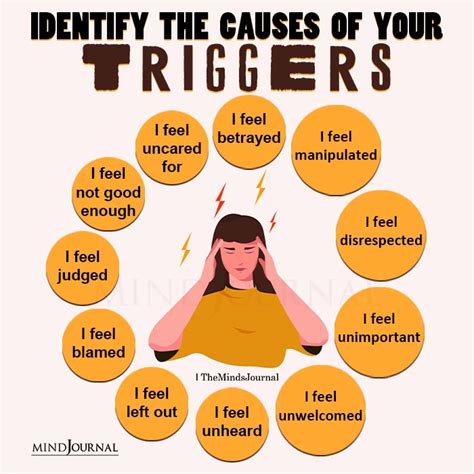Intro
Break free from emotional eating for good! Learn how to overcome emotional eating habits, develop a healthier relationship with food, and achieve sustainable weight loss. Discover the underlying causes of emotional eating, and get expert tips on mindful eating, self-care, and stress management to transform your eating habits and improve your overall well-being.
Emotional eating - the silent saboteur of our diets, our health, and our happiness. It's a pattern of behavior that can be incredibly challenging to break, but one that holds the key to unlocking a more balanced and fulfilling relationship with food and ourselves. In this article, we'll delve into the world of emotional eating, exploring its causes, consequences, and most importantly, practical strategies for overcoming it.
For many of us, food is more than just sustenance - it's comfort, it's joy, it's a way to cope with stress, anxiety, and other emotions. But when we use food as a crutch, we risk developing a toxic relationship with it, one that can lead to overeating, guilt, and shame. Emotional eating can be a vicious cycle, but it's one that we can break free from with the right tools and support.
Understanding Emotional Eating

Before we can overcome emotional eating, we need to understand its underlying causes. Often, emotional eating is triggered by stress, boredom, or other emotions that we're not equipped to manage in a healthy way. This can lead to a pattern of behavior where we turn to food for comfort, rather than addressing the underlying issue.
Some common causes of emotional eating include:
- Stress and anxiety
- Boredom and lack of stimulation
- Emotional trauma or past experiences
- Low self-esteem and body image issues
- Social pressures and cultural norms
The Consequences of Emotional Eating
Emotional eating can have serious consequences for our physical and mental health. Some of the most common consequences include:
- Weight gain and obesity
- Digestive problems and nutrient deficiencies
- Increased risk of chronic diseases, such as diabetes and heart disease
- Negative impact on mental health, including depression and anxiety
- Poor body image and low self-esteem
Breaking Free From Emotional Eating
So, how can we break free from the cycle of emotional eating? Here are some practical strategies to get you started:
Identify Your Triggers

The first step in overcoming emotional eating is to identify your triggers. Take some time to reflect on when and why you tend to eat emotionally. Is it when you're stressed at work? When you're bored at home? When you're around certain people or in certain situations? Once you understand your triggers, you can start to develop strategies for managing them in a healthier way.
Develop Healthy Coping Mechanisms
Find Alternative Ways to Cope
When we're feeling stressed, anxious, or bored, our first instinct might be to reach for food. But there are many other ways to cope with these emotions that don't involve eating. Some alternatives might include:
- Exercise or physical activity
- Meditation or mindfulness practices
- Creative pursuits, such as art or music
- Spending time in nature
- Connecting with friends or loved ones
Practice Mindful Eating
Eat with Intention and Awareness
Mindful eating is the practice of paying attention to our food and our bodies while we eat. It's about savoring each bite, noticing the flavors and textures, and eating slowly and intentionally. When we eat mindfully, we're more likely to feel satisfied and fulfilled, and less likely to overeat or make unhealthy choices.
Seek Support
Build a Support Network
Overcoming emotional eating can be a challenging and isolating experience, but it doesn't have to be. Building a support network of friends, family, or a therapist can make all the difference. Having someone to talk to, someone who understands and supports you, can help you stay motivated and accountable on your journey to breaking free from emotional eating.
Focus on Nutrition and Self-Care
Nourish Your Body and Soul
Finally, it's essential to focus on nourishing your body and soul. This means eating a balanced and nutritious diet, staying hydrated, and getting enough sleep. It also means taking care of your emotional and mental health, through practices like self-care and self-compassion.
Conclusion
Breaking free from emotional eating is a journey, not a destination. It takes time, patience, and support, but the rewards are well worth it. By understanding the causes and consequences of emotional eating, and by developing practical strategies for overcoming it, we can break free from the cycle of emotional eating and develop a healthier, more balanced relationship with food and ourselves.
FAQs
What is emotional eating?
+Emotional eating is a pattern of behavior where we use food as a way to cope with stress, anxiety, and other emotions.
What are some common causes of emotional eating?
+Some common causes of emotional eating include stress and anxiety, boredom and lack of stimulation, emotional trauma or past experiences, low self-esteem and body image issues, and social pressures and cultural norms.
How can I break free from emotional eating?
+Breaking free from emotional eating requires a combination of self-awareness, healthy coping mechanisms, mindful eating, and support. It's also essential to focus on nutrition and self-care.
